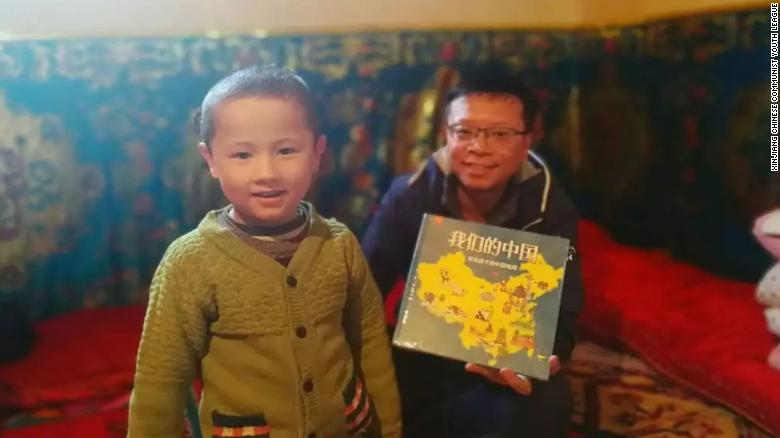These "relatives," as they have been trained to call themselves, are part of an effort to fully assimilate the Uyghur population by undermining things as basic as religion and language, family structure and food culture.
Reports of the home stay system published in state media said the visits would "enhance ethnic unity," with pictures posted of Communist Party members posing smiling with Uyghur families.
When I visited the region in April 2018 I met a number of these Han civil servants. I asked them to tell me about their work and what they thought about it.
Through my research I found that these "relatives" have been given two major tasks when they arrive in Uyghur homes. Their first priority is fact finding. They are tasked with uncovering religious and ethnic nationalist attitudes. They also attempt to understand the loyalties Uyghurs have to family members that have been detained.
The manual that is used by "relatives" in Kashgar prefecture advocates asking Uyghur children questions regarding sensitive issues since "they will tell the truth." The information they gleaned through this process is then entered into digital security systems, where higher-level authorities determine who should be sent to the camp system.
The second priority for the "relatives" is what they refer to as "showing warmth" or care to Uyghurs.
In echoes of American military attempts to "win the hearts and minds" of Afghans and Iraqis in the first decade of a related "War on Terror," this approach centers on showing sympathy regarding Uyghur living circumstances and asking questions regarding things that would improve their lives.
Of course, this form of care does not include extending sympathy for missing and detained family members. The manual they used in Kashgar Prefecture warned against this. It told them to be careful not to be "brainwashed" into sympathizing with Uyghur families.
I found that it was difficult for the majority of the civil servants I spoke with to place themselves in the position of the Uyghurs whose lives and society they were destroying. They saw the type of violent paternalism they were engaged in as necessary to find a solution to what they called the "Xinjiang problem."
Many of them believed that dominating all aspects of Uyghur life was the only way to move forward with the project of the Chinese nation.
George Orwell has argued that when people come to believe in the necessity of their dominance they often become obsessed with disrespect on the part of others. Their domination needs to be loved. In such a state, Orwell notes, "actions are held to be good or bad, not on their own merits, but according to who does them."
Under such conditions outrages such as imprisonment without trial, the removal of children and the occupation of minority homes are viewed as normal and necessary.
Many of the Han civilians who were involved in the broad Uyghur reeducation effort, particularly the most recent arrivals in Xinjiang, told me that they saw themselves as building a kind of secular Han nationalism. And this impulse, combined with the totalitarian control of the Chinese leadership, made the question of the ethics of the camp system an even harder question to ask.
For them it was easier to say that in the end this painful, yet banal, process would be a long-term benefit to Xinjiang's Uyghurs and Kazakhs -- another Muslim ethnic minority in the region. After all, through this process Xinjiang would become secular and safe for Han people.
Many "relatives" believed they had sacrificed their time and energy in reeducating Muslims, and in return they believed they deserve to be embraced by their Uyghur and Kazakh "little brothers and sisters." They were not able to think about the effects of what they are doing from the perspective of their Muslim neighbors.
As Hannah Arendt observed decades ago about systems of mass oppression elsewhere, the banality of Uyghur unfreedom was simply a product of those in power "doing their jobs." Until Han "relatives" can confront what they have been forced to enact, resistance to the state-directed human engineering project in Xinjiang will remain unthinkable.

